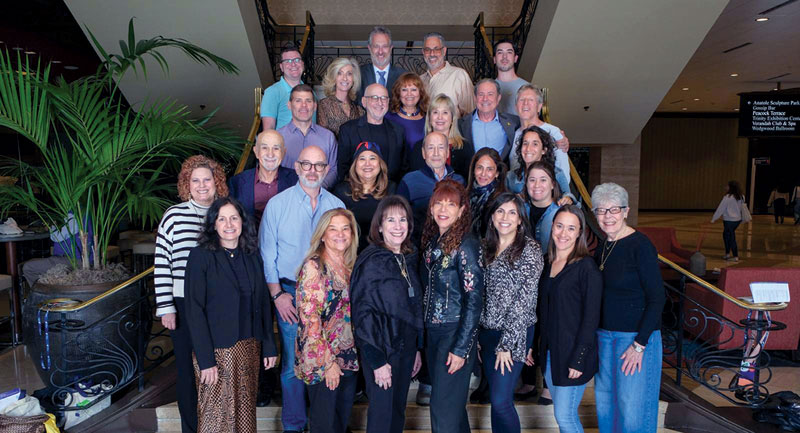I love eating challah, but until recently, I refused to be a “challah baker.” The term irrationally evoked an image of a woman chained to her kitchen, slaving away for the sake of others, with no desire or choice to impact the world. That is not who I am. I am an Orthodox feminist, committed to changing the communal landscape by helping Orthodox women advance to the highest echelons of Jewish leadership—to ordain women as spiritual and halakhic leaders. I am not a challah baker.
But the truth is that while my husband is a partner in raising our children and keeping our home, I am primarily responsible for providing dinner and making school lunches. And so, on a daily basis, I try to do it all. I function as a rabbi in a large Modern Orthodox synagogue in New York, run Yeshivat Maharat to ordain Orthodox women as spiritual leaders, and travel the world to ensure that the yeshiva’s graduates have a foundation of support. On top of this, I pick up my young children after school, make dinner, and put them to bed. After which, I resume working. Realistically, I simply don’t have time to make challah.
Women cannot do it all, and I applaud Anne-Marie Slaughter for her honesty and courage in bringing this to the forefront of her recent article for The Atlantic, “” title=”Helping mothers have it all” target=”_blank”>Susan Freudenheim: Helping mothers have it all]
The Talmud (Kiddushin 29a.) lists several commandments (mitzvoth) that women are “patur” or exempt from performing because they are positive time bound commandments. Blowing the shofar, sitting in a sukkah, and learning Torah are a few of these commandments. Positive time bound commandments require the person performing the mitzvah do so within a certain time frame. However, this exemption does not mean that women are forbidden from performing these mitzvoth. Historically, during times when women’s primary responsibilities revolved around work in the home, this exemption was quite liberating. It was not always feasible for women to leave the house and sit in a sukkah or leave their child’s side to pray. But for women who are able to accept these time bound commandments and obligate themselves, then they may.
This very ethic should drive women’s decision to work outside of the home as well. Our tradition recognizes that some women (who can financially afford to) choose to remain at home to focus on raising children, and therefore, they are exempt from performing the time bound commandments. The halakha condones, perhaps even encourages women to consider this choice. But our tradition supports a woman’s pursuits outside of the home as well, and makes provisions accordingly. She may perform these time bound mitzvoth because the parameters of the law give her the flexibility to fulfill the mitzvah at her own pace.
And so, the choice to enter the workforce should not require a woman to sacrifice her family life. A woman should have the opportunity to be at the table, lean forward, as Sheryl Sandberg suggests in her TED Talk, while at the same time remain present for her family. Many women have managed to strike a modicum of balance. They have negotiated fulfilling careers allowing for part-time work, or reasonable working hours. It is a fact that there are certain career tracks that make a work/life balance very challenging. And as Anne-Marie Slaughter notes, it is the expectations placed on women in these careers that must change. In my own life, I have discovered that the rabbinate is an example of this type of career.
Generally, rabbis are expected to be available to their communities all the time. A pulpit rabbi is expected to open up the synagogue at 6am and close it at 10pm, literally bound by time. But at what personal cost? This kind of rabbinate is not sustainable for anyone, male or female. Does being present all day allow one to be a fully capable pastoral caregiver? Does it make the rabbi more pious to be at the office, all day long? Alternatively, imagine the values that one can imbue on children, and the message a rabbi could send to congregants if he/she is a consistent presence as a parent for children during meal times.
The rabbinate is most certainly a time bound job. But it is also a career where women, if they so choose, can impact the Jewish community. However, to harness this 50% of the population, the job description must shift. I am not advocating for spiritual leaders to avoid working hard, or to waiver in their commitment to community. I am suggesting that the community change its expectations of what is possible to achieve in a single day.
Yeshivat Maharat is not training Orthodox women to become female versions of male rabbis. We teach our students to embrace their feminine attributes. We recognize that women have tremendous talents and abilities and drive to serve the community, with a commitment to their families as well. Therefore, the Orthodox community should go forth with a realistic understanding of women’s commitment to their families, so that talented passionate women can dedicate themselves fully to their families and their communities.
So what do women, time, careers, and family have to do with challah? I used to think I had to pick one over the other—making challah or pursuing a career. But, recently I started baking challah. In the beginning, my method was to wake up in the middle of the night to braid the challah until my sister suggested that I bring the dough into the office and knead between pastoral visits or sermon writing. I want to succeed in my career and I also want to make challah. More and more, I think it is possible to create a work environment where there is time for both. I haven’t figured out how to do it all. But with the right communal support and with an attempt to re-envision communal expectations, I can be a challah baker and a spiritual leader at the same time.






















 More news and opinions than at a Shabbat dinner, right in your inbox.
More news and opinions than at a Shabbat dinner, right in your inbox.